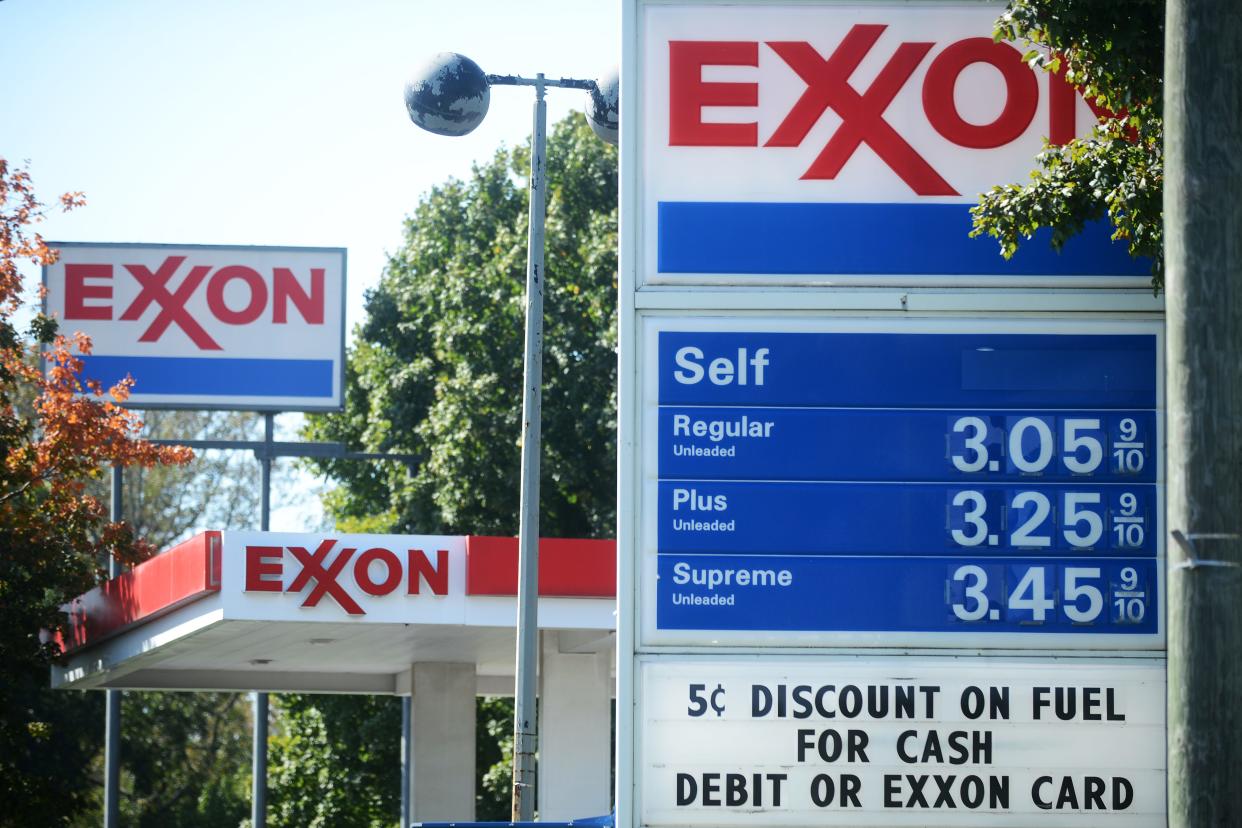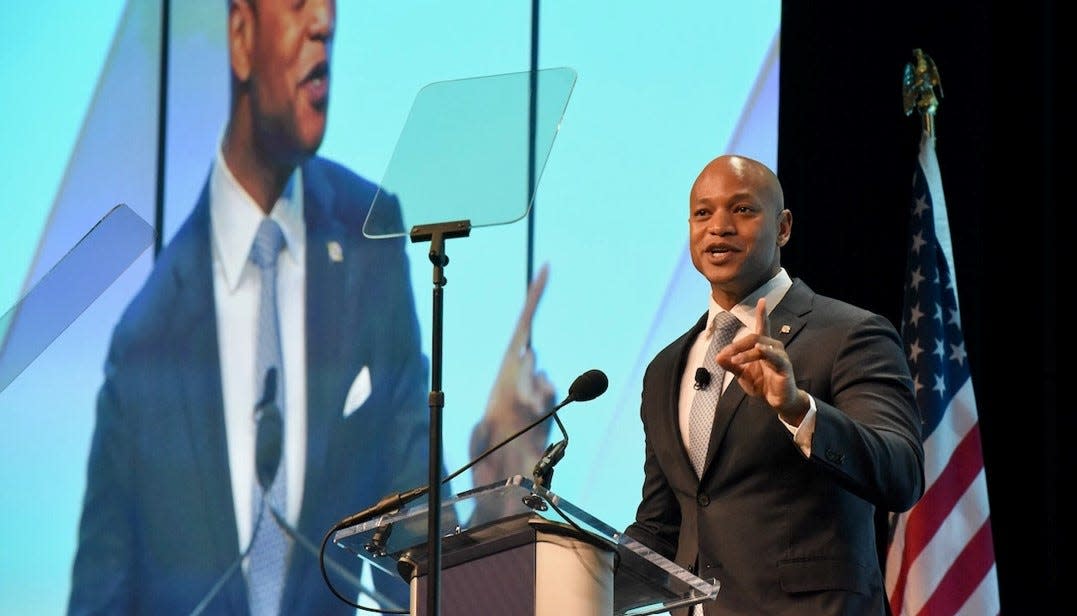Can Maryland benefit from fees on greenhouse gas polluters? What's in proposed bill.
A new bill currently in committee is proposing a fee on greenhouse gas polluters in Maryland to pay for climate change goals established by the administration of Gov. Wes Moore.
House Bill 516, referred to the Economic Matters Committee and Environment and Transportation Committee, establishes the Climate Crisis Initiative in the Maryland Department of the Environment to provide for the assessment of greenhouse gas pollution fees on companies deemed to be responsible for them. The proposed bill also sets up the Household and Employer Benefit Fund and the Climate Crisis Infrastructure Fund, aimed at paying for measures to meet the state's long-term environmental objectives.
The legislation is slated to raise an estimated $1.7 billion annually, amounting to a projected $17.7 billion between 2025–2034. The subsequent investment will be in clean energy infrastructure, while providing protective benefits to Maryland’s most vulnerable populations and trade-exposed small businesses.
Companies like Chesapeake Utilities, which includes Elkton Gas, will continue with business as usual in providing gas to consumers.
Wicomico joins social media lawsuit: Wicomico Board of Education takes on social media in class action lawsuit: Here's why
"Regardless of the outcome of HB 516, Chesapeake Utilities will continue to operate in a way that benefits its Maryland customers," said a spokesperson for the company. "The company continues to experience increasing customer demand for natural gas in Maryland, and Chesapeake Utilities continues to make investments in the state to ensure that residents and business owners have access to the energy services they want."
It is too soon to tell what impacts the greenhouse gas fee will have on oil and gas prices for consumers, but according to advocates of the bill, some pushback has stemmed from how the funds will be used. The same bill, then called HB 171, was introduced in 2022 but failed to get out of committee.
Big oil and being carbon neutral: Exxon/Mobil's approach

As a leading oil and gas company, ExxonMobil has created a plan to deal with greenhouse gas emissions.
Its 2024 Advancing Climate Solutions Report outlines goals and methods to achieve a 2030 emission-reduction plan and a 2050 net-zero ambition by electrifying operations, using lower-carbon power and upgrading equipment.
It also highlights reducing methane emissions' intensity by using "best practices and deploying advanced technologies."
Finally, the company aims to find ways to help others cut emissions by developing carbon capture and storage, lower-emission fuels, hydrogen and lithium through its Low Carbon Solutions business.
"This is an immense opportunity with an addressable market potentially measured in the trillions of dollars by 2050," states the report. "That’s why we established ExxonMobil’s Low Carbon Solutions business. We’re working to profitably grow a leading position in these new emission-reduction markets, with a focus on the global economy’s hard-to-decarbonize sectors – like heavy industry, power generation and commercial transportation."
More on offshore wind struggles Wind energy opponents rally in Ocean City, led by Andy Harris, New Jersey lawmakers
Exxon/Mobil's findings further stipulate that attaining the greenhouse gas goals will require continued advances in technology, "and clear and consistent government policies that catalyze investments in the near term."
Advocates: 'Taxpayers shouldn't be burdened' with pollution costs

Proponents of the legislation note the fees will also keep taxpayers from paying for programs by the state to reach its stated "green" objectives.
"We can’t continue to kick the can down the road. We must take action now to protect our planet for future generations," said Wandra Ashley-Williams, one of the bill's advocates. "Taxpayers shouldn’t be burdened with the cost of mitigating the damages pollution has caused to the state. It’s time we held them responsible for mitigating the destructive impacts to Maryland’s lands, history and economy, as well as to the health, traditions and prospects of its people."
As part of how the funds are structured, the legislation allocates 5% of the revenue each year, or a projected estimate of $75 million annually, to cover administrative costs including properly staffing agencies responsible for implementing the policy.
Proponents of the legislation also hope this underscores the need for Maryland to enact new carbon reduction policies to reach deeper pollution reduction. Should the law pass, advocates argue it provides a framework that keeps more energy dollars local, creates new jobs, and protects vulnerable sectors including disproportionately affected and low-and moderate-income residents.
Housing bills in Md.: Housing in Maryland at ‘inflection point,’ Sec. Day says. Legislature considers bills.
This article originally appeared on Salisbury Daily Times: Greenhouse gas polluters would be fined with proposed Maryland bill
